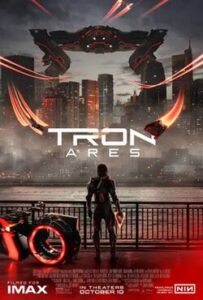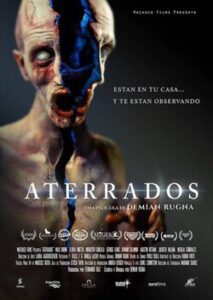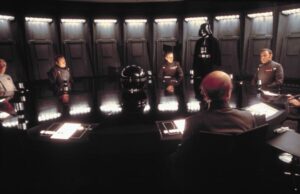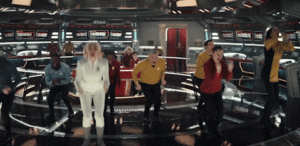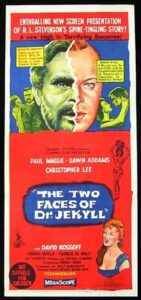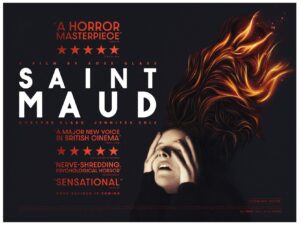No Quick Solutions to America’s Gun Death Problem
In the novel I am writing, taking place in 1984, that summer in reality witnessed the first of the modern era of mass shootings with the San Ysidro McDonald’s massacre. I have struggled to work out how this should play into a novel of supernatural threats, ghosts, and terrible dark gods beyond the stars. In the end I think I may just wrap up the story before that terrible day in August, though it means I won’t have an in-story salute to my girlfriend at the time who slapped someone for a tasteless joke as a callback during that weekend’s screening of The Rocky Horror Picture Show.
Since that day and since Columbine, the pace of mass shootings in this nation has accelerated so horrifically that now not only do we have frequent mass shooting events, they have become background noise in the media maelstrom, sometimes passing unnoticed.
The right will make actionless pleas for “thoughts and prayers,” decry the mental state of the individuals, and lately look for even the slimmest evidence that the murderer came from their political opponents’ camp.
The left will decry that the right will not let them make even the smallest move to control the sale and ownership of firearms, mock the thoughts and prayers even as some offer them sincerely and not in the same cynical move as the elected officials, and also engage in the “it was one of them” hunt now so popular.
In my opinion, both sides are wrong and deluded.
Part of the humor in the horror comedy from New Zealand, Black Sheep (2006), is that in that island nation there are more sheep than people. In the United States there are more guns than people. I think the current estimate is 1.2 firearms for every man, woman, and child, and of course they are not evenly distributed. The guns are out there, compliance with any new laws will be resisted and lax, meaning those guns will be there for any foreseeable future. Prohibition is a legal tactic that never eliminates the forbidden actions or possession. What prohibition does is license the state to use its monopoly on violence to selectively, and it is always selectively—ask any African American in America if the law is applied without favor or bias—as a punishment and message on the subject. If we were starting from a much lower ratio of guns to people, maybe perhaps the supply side could be effectively tempered, but that ship has long since sailed.
Anyway, the gun is not the trouble; the person using it is. Now, this sounds very much like the right’s argument that guns don’t kill people, people kill people, but that’s merely a verbal dodge to change the subject and preserve their beloved hobby. (And it is a hobby. I doubt any of the firearm militia enthusiasts would answer a call from Governor Gavin Newsom to put their bodies on the line for California, which is the duty of the militia in ensuring “the security of a free state.”)
The trouble with the person who easily moves to murder, or to suicide, which accounts for nearly half of all gun deaths, is the culture and society which produced that person.
Suicide and mass shootings I feel are psychological siblings, with most mass shootings acting as vicious, hateful forms of suicide. The psychological forces driving people to despair and or hate so deeply that murder and death become seemingly rational are powerful sociological storms which we cannot change overnight.
The way I see it, two major factors are at play: a sense that the future is hopeless. When someone, particularly young men, sees the future as futile, despair and depression find fertile ground to blossom. Despair and depression can turn inward, becoming entirely self-destructive, or they can turn to hatred, lashing out at perceived victims.
In previous generations, young men moving into productive adulthood could see paths that led to stable lives, good middle-class jobs and incomes, and a social structure that valued white men more than any other category. The destruction of labor unions, the shattering of the social connections between employer and employee, killed the middle-class dream. Economic growth concentrated more and more in classes that the young men perceived as the enemy. Social changes bringing about equality they perceived as “demotions” of their status. Is it any surprise that this turned into epidemics of suicide and murder?
Rebuilding unions, the engine that drove the economic miracle of midcentury America, requires that the conservatives abandon their current policies, and even if they did, the damage which took generations to incur would take generations to heal.
The other clear factor that separates America from the rest of the world on this issue is that when it comes to healthcare, America’s bootstrap system leaves far too many people wallowing in pain, both physical and emotional, without any hope of relief. More despair to transform into hate.
Again, conservatives, intent on transferring economic gains to the upper ends of the bell curve, have no incentive or taste for an expensive universal healthcare system.
With the current political parties and system, we are trapped, and for generations we will see more murder and more pointless deaths.
